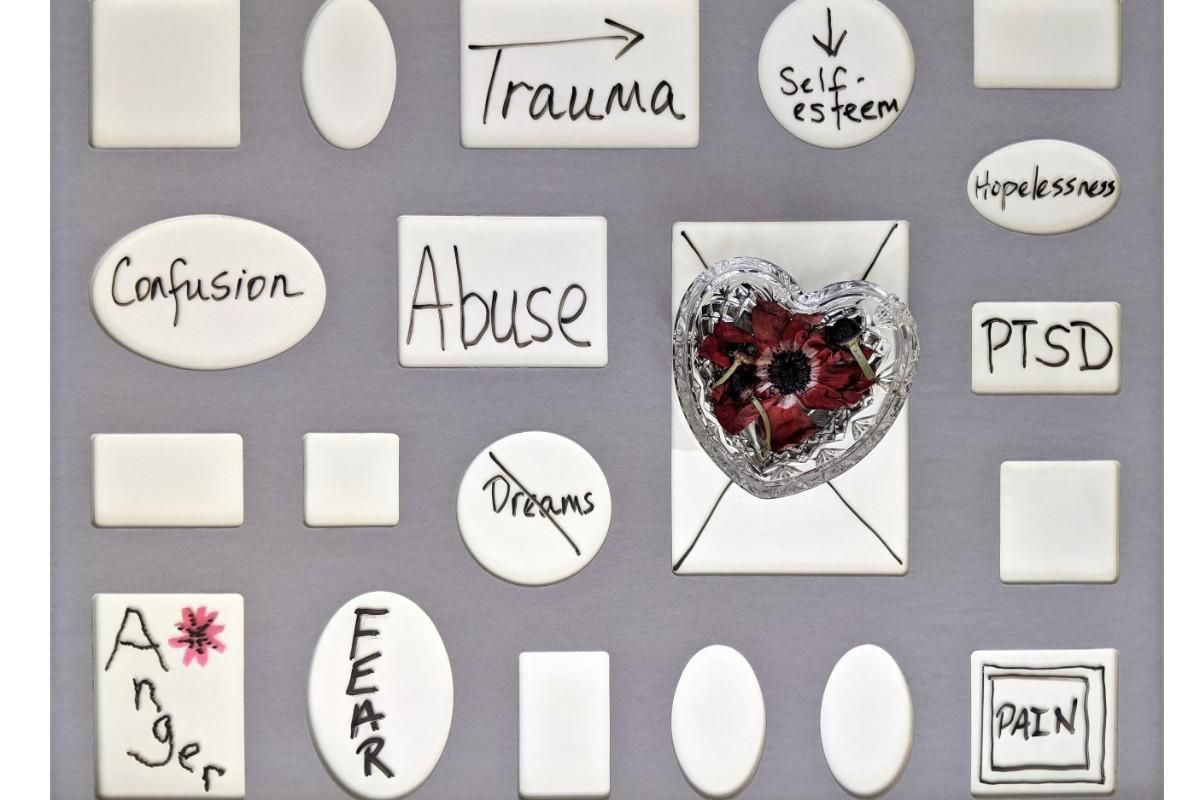Woman leaning on another person for support.
April was Sexual Assault Awareness month, and most of the time the narrative about assault gets lost in the heteronormative world. Unless we have experienced it first-hand, the images that come to mind are often stolen from the news and they are mostly man-assaults-woman kind of images. But a huge part of the LGBTQ+ community has experienced sexual assault of some form and is incredibly underrepresented. A 2020 study by the Williams Institute at UCLA School of Law demonstrates, in fact, that LGBTQ+ people are nearly four times more likely to be victims of sexual assault than non-LGBTQ+ people.
Sexual assault is, by definition, “any type of intentional physical conduct that the victim has not consented to”, and falls under criminal law, while sexual harassment is a form of sex discrimination, includes unwelcomed sexual advances and covers discrimination based on one’s gender and/or sexual orientation, and falls under civil law.
Sexual Violence and LGBTQ+ Communities
When a victim of sexual assault decides to come forward, it is never easy. Many fear not being believed, being pointed out as guilty, to not finding support; for LGBTQ+ people, it’s even harder as we face the risk to encounter homophobic or transphobic authorities and facing disbelief that sexual violence even affects the lives of LGBTQ+ people. But studies tend to highlight the contrary.
In a study dated 2006 called “Sexual harassment between same-sex peers: Intersection of mental health, homophobia and sexual violence in schools” it was found that lesbians and gays are most likely to suffer sexual violence as a hate crime than other minorities. For transgender people, the numbers are very high: in a study of 6.436 individuals who identified as transgender and gender-non-conforming, 51% had experienced sexual assault in school, and 6% at work; the rates were higher among people of color, which highlights the intersection between transphobia and racism. In another research, it was found that 47% of transgender people are victims of sexual assault in their lifetime, as well as 1 in 8 lesbian women, 1 in 5 bisexual women, 40% of gay men, and 47% of bisexual men.
What seems to be lacking, understandably, are the reports of these attacks. In fact, raped lesbian or bisexual women seem to come forward 11-53% of the time, while the percentage of raped gay or bisexual men coming forward is 11-45%. This is commonly due to the possibility of not being believed, but also the possible fear of coming out to the authorities.
Sexual Assault Facts
Photo by Mika Baumeister on Unsplash
Your body belongs to you
Surviving sexual assault takes a lot of strength. In fact,
- sexual assault survivors are 13 times more likely to attempt suicide than people who have not been abused
- 40% of survivors contract a sexually transmitted disease during the abuse
- 42% of raped women expect to be raped again at some point in their life
- 4 out of 5 victims develop some sort of post-traumatic stress disorder. These mental health consequences include impaired memory and concentration, difficulty in relating to others, difficulty in engaging in a relationship, anger, rage, detachment, nightmares, apathy, self-harm, suicidal behavior, sleep disturbance, and drug and alcohol abuse.
- In cisgender men, the consequences of sexual assault can include the contraction of STDs (including HIV), infertility, sexual dysfunctions, abscesses of the rectum etc.
- In the LGBTQ+ community, we are 6 times more likely to experience violence from someone who is well known to us, and about 2.5 times more likely to experience it from a stranger, compared to non-LGBTQ+ people.
What to Do If You Are Sexually Assaulted
If you are attacked and want to report the crime to the authorities, do it as soon as possible, without taking a shower or changing your clothes, in order for the medical personnel to gather physical evidence of the assault.
Remember that everyone deals with sexual assault differently, especially when survivors. Do not feel pressured to come forward as a survivor: you should do so on your own time and terms, if you ever desire to. It is helpful, though, to talk about it and process the trauma with people you trust: be it a friend, a family member or a therapist. Dealing with the post-traumatic stress can be exhausting, which is why therapy is considered a valid method to get through it.
A lot of the time survivors feel the need to connect with people who underwent similar experiences, which is why support groups are a valid option. You can find them online or through therapists in your area if you prefer to meet in person.
LGBTQ+ Resources
If you or anyone you know is in a crisis, these resources should help:
- For the US: visit the Rape, Abuse, Incest National Network website to find their hotline and additional information.
- For Europe: visit the Rape Crisis Network Europe website to find your country’s hotline and additional information.
